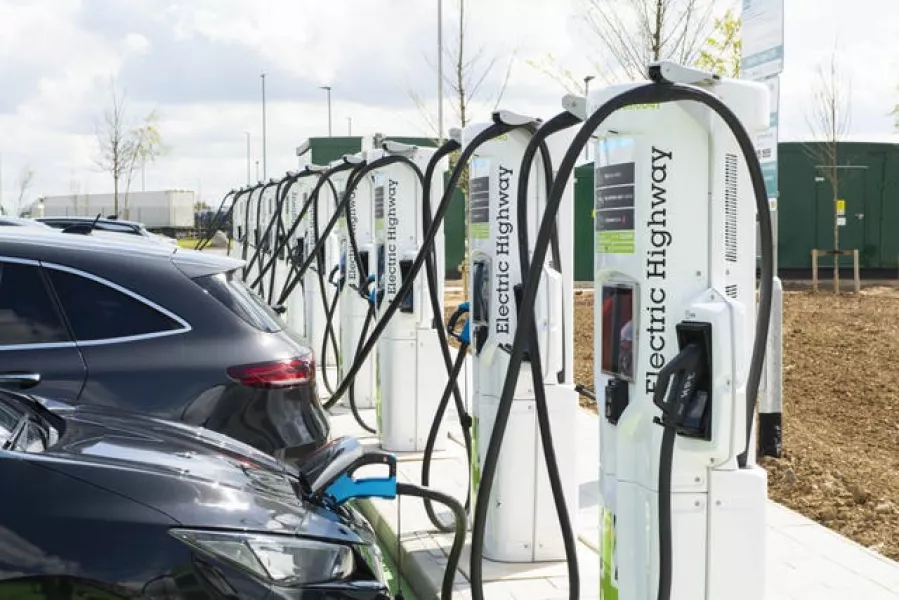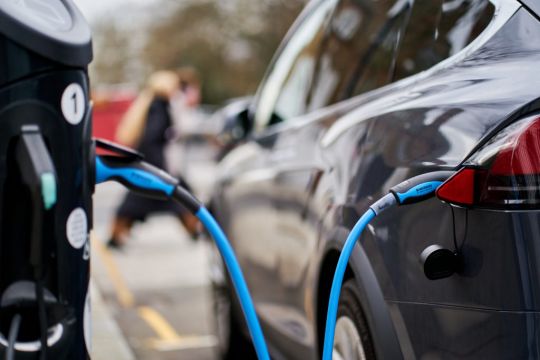The Government's current strategy of generous subsidies to support the sale of electric vehicles is a costly way to decarbonise transport in Ireland, one international body has said.
The Organisation for Economic Co-operation and Development (OECD) warned the strategy would “drain budgets” and advised it be complemented with other strategies such as road pricing.
The body was giving evidence before the Budgetary Oversight committee on the cost of climate change.
The OECD recently complied a report – Environmental Performance Review of Ireland – looking at the state’s climate change policies.
Ivana Capozza, a senior policy analyst at the OECD, said: “The target of almost one million EVs (electric vehicles) by 2030 is the main pillar of your strategy to decarbonise transport.
“Generous subsidies have supported sales of EVs, but their share in the fleet remains negligible. Our report notes that these grants are a costly way to decarbonise mobility.
“You should consider complementing these EV subsidies with travel demand management – including road pricing – higher taxation of conventional vehicles and a more extensive charging network.
“The planned increase in the share of EVs will also contribute to a significant loss of public revenues from motor fuel taxes and motor vehicle purchase taxes, which are linked to the CO2 emissions of the vehicles.

“Hence, there is a need to shift road transport taxation from a focus on fuel use to road use over the medium-term.
“While also raising needed revenues, such road pricing could help better address congestion.”
OECD research and policy analyst Tatiana Samsonova said: “Only focusing on an improved type of measure is an extremely costly way to decarbonise the transport system in Ireland.
“It will drain budgets and it is still going in the direction of car-ownership.”
'Middle-class incentives'
Green TD Brian Leddin said the target of having one million electric vehicles on Ireland’s roads by 2030 was “neither achievable or desirable”.
“I don’t see how we can reach that target without throwing huge subsidy at the purchase of electric vehicles,” he told the committee.
“They don’t solve a lot of the problems we have. It’s a costly way to decarbonise mobility.”
Meanwhile, Fianna Fáil’s John Lahart described some of Ireland’s green initiatives as “middle-class incentives”.
“All of the significant initiatives in Ireland, whether it is in relation to retrofitting or the purchase of electric vehicles or extension of the bike-to-work scheme to e-bikes, require the purchaser of any of these commodities to have cash up front and to have significant savings,” he added.
“They can be described in a general way as middle-class incentives.
“You have to have a lot of money upfront to avail of any tax incentives.
“If you want to buy a full electric vehicle, you have to have €35,000 to €40,000 to get a decent electric vehicle before you can avail of incentives.
“It means those who don’t have savings or aren’t on large wages either have to take significant loans, so it precludes a significant amount of people from investing or taking advantage of it.”
Tackle poverty
Sean McCabe, executive manager at TASC Climate Justice Centre, said climate action must tackle poverty.

He warned that the cost of retrofitting or switching to renewable energy should not fall on those who could least afford it.
He also said the effort of retrofitting should start with social housing, but added: “Though, because of the use of Housing Assistance Payment (HAP), we have to be careful of unintended consequences.
“Once you start retrofitting houses, there is a risk that the value of that property goes up in terms of its rental value and you would see people being moved out in favour of higher-paying tenants.”







